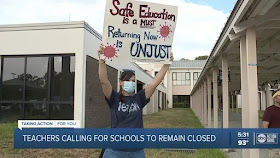I had the good fortune to take my family to Delaware for the weekend to celebrate Mother’s Day. It’s not like it was a massive trip, it’s a 3-hour drive, but Rehoboth Beach is a great place to go if you have young kids. It’s also, apparently, a great place to hide out if you’re trying to hide your mental decline. At least, that’s what it is for President Joe Biden. Well, that and a place for his son to party, probably.
But even here, a place Joe Biden calls home almost more often than the White House, among the people who know Joe best – the people who literally live a pretty solid drive and a low iron shot away from his beachfront mansion – there isn’t a lot of love for him.
In driving through the state, I did not see a single Biden sign. There were quite a few Trump signs, though not a ton – this is a deep blue state, after all. But as far as passion and enthusiasm goes, I found none for Joe.
I’ve been here before and checked in on how “The First State” is feeling about its favorite son (seriously, can you name anyone else from Delaware off the top of your head?) and it’s never been good. That being said, Joe Biden won every election here in a walk since 1972. Sure, he benefited from a Democratic Party machine that kept voters in line and obedient, but you’d at least think the state would be mildly excited that he’s president. They don’t seem to.
I grew up in Michigan and knew Gerald Ford was from there, and he was not elected to be Vice-President or President (the only person to serve as both without having been elected to either). We didn’t brag about it, but everyone knew about it.
Joe Biden has been elected to both and his vacation town seems embarrassed by it.
I can’t blame them, he really is the worst President of the modern area, maybe even all time, but you’d still think there’d be some Delaware pride money to be made off it. Jimmy Carter is happy to have lived long enough to see his horrible failure of a presidency lapped by this boob, but Delaware seems in denial.
But you know who is popular there? At least in Rehoboth Beach: Donald Trump. On the boardwalk you will see a lot of Trump shirts for sale, hanging outside the stores to draw people in. There were at least 7 different design options they were showcasing, with more inside their stores. The most popular? The Trump mugshot with “Not Guilty” underneath it, according to one t-shirt shop manager I spoke to. There was the same shirt with “Guilty” written under it but, “That one doesn’t really sell.”
I saw one pro-Biden shirt, just one. All it said was “Biden 2024” and it was hanging near the floor.
That was one shirt from four different shops.
Joe Biden inspires blah. People either love or hate Donald Trump, people seem to hate Joe Biden or not think about him at all. Many people will vote for him, no one seems excited at the prospect.
Joe Biden is the melba toast of American politics – sure, it will stop your stomach from growling, but who cares? Is it really worth it?
In an election that will be about turnout, that turnout will, weirdly and probably for the first time in history, be driven exclusively by one candidate, and it’s not the current President.
Voters will show up to vote for or against Donald Trump, Biden is almost irrelevant. If he didn’t suck so badly at the job, there might be fewer people excited to vote against him, but no one is excited to vote for him. Not even the people who did so for the 50 years of his political career.
“He’s too old,” said the guy I asked who’d made a positive comment about the Donald Trump bear my wife won our daughters out of a claw machine. The machine was out on the boardwalk, not hidden in the back, and there was nothing Biden related in the arcade at all.
None of this means the election is in the bag – nothing is over until it’s over, and I wouldn’t put anything past Democrats – but things are looking good for Republicans at this point. Only have to keep it together for six more months.










